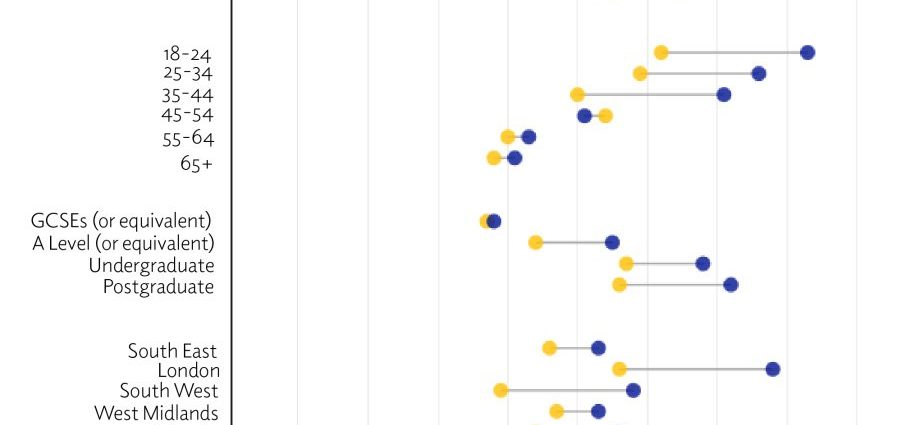ADVERTISEMENT
For some time it has appeared that not many people were talking about Brexit, and the major parties were certainly not. However, it seems that the public mood is changing. A recent poll ahows that there has been a significant change just this year in the number of people who say that they would like the UK to rejoin the European Movement. Overall there is a shift from 44% who stated ‘rejoin’ in February 2022 to 56% in November 2022. And what is particularly interesting for those of us in the North East is that the shift moves from 36% in February to 62% in November.
The statistics are taken from a poll tracker by UK in a Changing Europe with Redfield and Wilton Strategies. This tracker has been operational now for almost a year and shows any shifts in opinion for the country as a whole as well as by region, age and level of education. The data has been collected at regular intervals from sample sizes of around 1,500, weighted by age, gender, education, region and 2019 General Election vote.
Here you can see the graph for November 2022.

The North East
The graph shows a number of interesting things. Firstly, in February 2022, the North East has the lowest percentage who said that they thought the UK should rejoin the EU, and secondly that the North East is now showing the largest shift in opinion, even higher than London. A huge change in public opinion locally.
Age
When we look at the results by age, we see, perhaps unsurprisingly that the higher percentages for rejoining and also the greatest shift in that direction is from the younger age ranges. Of course, there are still many people who voted to remain in 2016, and who want to rejoin now, but this data shows the overall picture.
Education level
Again, possibly not a surprise, we see that the initial position (in February) for rejoin as well as the shift towards rejoin, seem to correlate positively with level of education. So the higher the level of education makes it more likely that a person wants to rejoin or to move in that direction. The level that has not moved much includes people with GCSE as their highest education level.
Why the shift?
It’s a complex issue and of course there may be many reasons. The tracker can’t tell us. However, interestingly, as Dr Alan Wager and Professor Surridge (UK in a Changing Europe) say, when commenting on the North East (and the South West):
“Our recent work on levelling up found these areas that have moved towards rejoin were the parts of England with the greatest scepticism about politics at Westminster. It may be that scepticism about politics and euroscepticism are not quite as intertwined as they once were.”
Certainly there will be more research and polling on this, and related issues, over the next few months. It does appear that from Brexit being over, there is still a lot more to happen.

We need your help! The press in our country is dominated by billionaire-owned media, many offshore and avoiding paying tax. We are a citizen journalism publication but still have significant costs. If you believe in what we do, please consider subscribing to the Bylines Gazette 🙏


